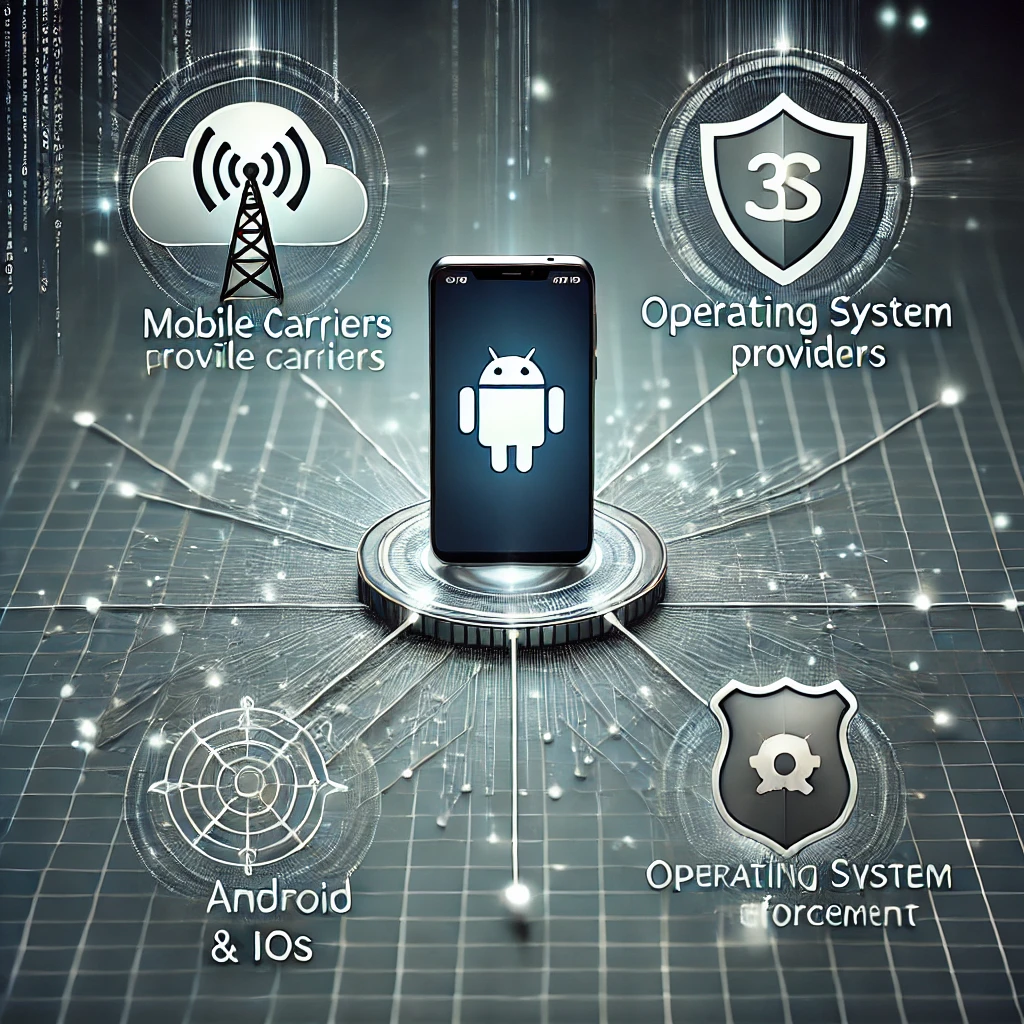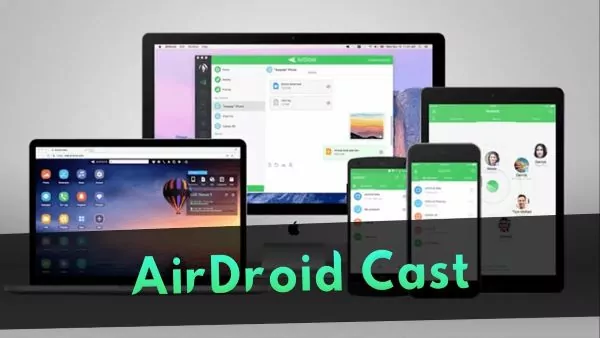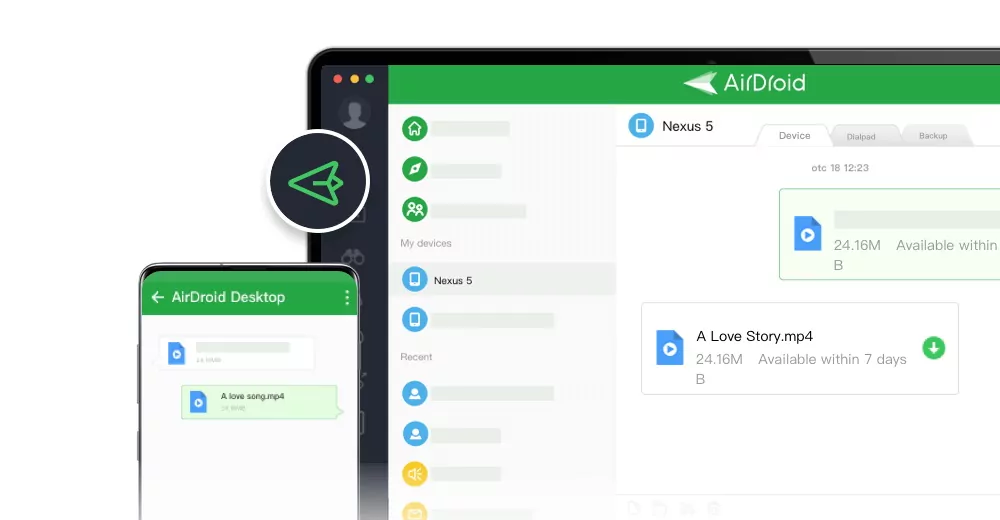Can Someone Track My Location with My Phone Number or a Phone Call?
Your phone is being tracked as we speak. Sounds scary, but it's true!
While most tracking happens through apps, GPS, or network connections, some methods allow a person to approximate your location using just your phone number. This leads to many people asking: "Can someone track my location with my phone number?"
In this guide, we'll find out whether this is truly possible, how it might work, and most importantly, what you can do to protect your privacy. Let's dive in and separate the myths from the facts.
How Does Location Tracking Work?
Modern smartphones track location using three main technologies: GPS satellites, Wi-Fi networks, and cell towers. These systems work together to pinpoint where you are, whether you're navigating with Google Maps or finding a lost device.
Here's a quick breakdown of these tracking methods:
- GPS tracking: The most accurate method, using satellite signals to pinpoint location within a few meters. Used commonly by apps like Google Maps and Find My iPhone.
- Wi-Fi positioning: Uses nearby Wi-Fi networks to estimate location within 100-300 feet, even when you're not connected to them.
- Cell tower triangulation: Measures signals between your phone and nearby cell towers, though it's less precise than GPS.
![]()
It's important to note that location tracking isn't inherently tied to your phone number. Instead, apps, services, or networks are what typically activate location tracking using one of the above methods.
Can Someone Track My Location with My Phone Number?
Your location isn’t something just anyone can access. In general, only these three main entities can legally access your location information with Phone Number:
- Mobile carriers: Can determine device location through cell tower connections, although they won't share it without a valid reason or a warrant from law enforcement.
- Operating system providers: Android and iOS can track location through their services.
- Law enforcement: Can request location data from carriers with proper warrants.

There are two ways to track someone just using the phone number.
The first method is called cell tower triangulation. When your phone connects to cellular networks, carriers can estimate your location by measuring signal delays between multiple towers. This method isn't as precise as GPS, but it can narrow things down to a general area—providing accuracy between 0.5 to 1.5 kilometers in urban areas.
For example, if someone calls you from an unknown number, the mobile network could estimate their location by checking the cell towers their phone is using. Police often use this method to figure out where someone is during investigations.
The second option is using mobile carrier records. Your network carrier maintains detailed records of your device's connections to their network, including the approximate locations based on which towers your phone is connected to over time. Law enforcement can request this data through proper legal channels to track a suspect's movements.
Can Someone Track My Location with a Phone Call?
We talked about phone number tracking above, now let's discuss the topic of: "Can someone track my location with a phone call?"
When you make or receive a phone call, your mobile carrier routes it to the nearest cell tower, creating a basic record of your general location. While in the call, your carrier sees which tower is handling it, giving a rough area estimate.
Emergency services are a great example of phone call tracking. When you dial 911, the system automatically tracks your location through cell towers to send help, even if the connection is lost.
But there might be other, indirect ways a phone call might reveal your location:
- Using spyware or malware: Malicious apps installed on your device can track calls and locations simultaneously. Some spyware tools can even record calls and GPS coordinates without your knowledge.
- Voice over Internet Protocol (VoIP) calls: VoIP calls can be traced through IP addresses and metadata, potentially revealing your general location area. However, this usually requires special tools and proper authorization
- VoIP apps: Apps that use VoIP (like WhatsApp or Skype) can track you during internet-based calls if you've granted them location permission. These apps collect this data for features like nearby friend alerts or location-sharing
- Phone number caller ID lookup tool: These tools can provide general location information but cannot track your real-time movements
- Third-party apps: Apps like TrueCaller can estimate your general location information based on area codes and carrier data, but this isn't real-time tracking
Phone Number vs. Phone Call Tracking
While both methods involve tracking devices, phone number tracking and phone call tracking serve different purposes and use distinct technologies. Here's a table summarizing the key differences between phone number vs. phone call tracking:
Feature | Phone Number Tracking | Phone Call Tracking |
| Common use | Spam detection, investigations, or data breaches | Marketing, emergency services, or criminal tracking. |
| Real-time tracking | Not possible; relies on data logs or prior activity | Possible; especially with cell tower data or emergency services |
| Technology used | GPS, cell towers, tracking apps | Call routing systems, unique phone numbers |
| Data collected | Location coordinates, movement history | Call duration, caller info, marketing source |
| Precision | Provides general location based on cell towers or public databases | Can pinpoint location based on triangulation or GPS data during a call |
| Privacy risks | Can be exploited in data breaches or by unauthorized parties | Requires legal authorization or emergency situations |
How to Make Your Phone Impossible to Track
Let's be real—there's no such thing as making your phone completely impossible to track. Your carrier provider and legal authorities can access all your tracking data with proper authorization.
But don't be discouraged! You can significantly reduce tracking capabilities by third parties or malicious apps by implementing various security measures. Some of them are mentioned below.
Protecting Your Location Data
- Turn Off location services: Disable location services to prevent apps from accessing your GPS data. For example, if you're exploring a new city and don't want navigation apps to track you, turn off location services.
- Disable Wi-Fi and Bluetooth location sharing: Turning off Wi-Fi and Bluetooth scanning stops your phone from sharing location data with nearby devices and networks. This is useful when you're in public spaces, like cafés, where your phone might leak your location.
- Use airplane mode: Airplane mode disables all radio signals, including GPS, Wi-Fi, and Bluetooth. This ensures no location data is transmitted, like when you're traveling and want to keep your location private
Avoiding Unwanted Tracking
- Use a VPN: A VPN encrypts your internet traffic and hides your IP address. If you're on public Wi-Fi, using a reliable VPN helps prevent hackers from tracking your location
- Install anti-spyware apps: Anti-spyware apps detect and block malicious software that could be tracking your phone's location. Running a scan can help you find and remove any hidden tracking apps
- Limit app permissions: Review and restrict location permissions in apps. For example, if an online shopping app requests access to your location, you can disable that permission to stop unnecessary tracking
Extra Steps to Enhance Privacy
When it comes to digital privacy, it's best to be proactive. Taking a few extra steps can go a long way in keeping your location and personal data safe.
Here are some additional tips to stay ahead:
- Use burner phones or temporary numbers: Apps like Google Voice or burner phones are great for hiding your real number when dealing with strangers or performing online transactions
- Switch to encrypted apps: Communication apps like Signal or Telegram use end-to-end encryption to keep your calls and messages private
- Update regularly: Keep your phone and all the installed apps updated to fix bugs or vulnerabilities that hackers could exploit.
- Tighten social media privacy: Turn off location tracking in social apps and tweak your privacy settings to limit data collection
Note: While these methods significantly reduce tracking possibilities, no solution is 100% foolproof. Always combine multiple steps for the best results.
FAQs
Is It Legal to Track Someone's Phone Without Their Consent?
No, tracking someone's phone without their consent is generally illegal and can lead to severe consequences. Always ensure you have permission or are operating within the law, such as for parental control or emergency situations.
What Is the Most Reliable Way to Track a Phone's Location?
The best way to track a device's location is by using built-in features like Google Find My Device for Android or Find My iPhone for iOS. These services are not only reliable but also free and completely legal. You can also use social media location-sharing features, but these require consent or login access.
Are Prepaid or Burner Phones Immune to Tracking?
No, prepaid or burner phones can still be tracked through cell tower connections or if they're used to make calls. However, they might provide anonymity if no personal information is linked to the device.
Does Turning Off My GPS Stops All Tracking?
Disabling GPS prevents apps and services from accessing precise location data, but your general location can still be tracked using cell towers or Wi-Fi networks.











Leave a Reply.